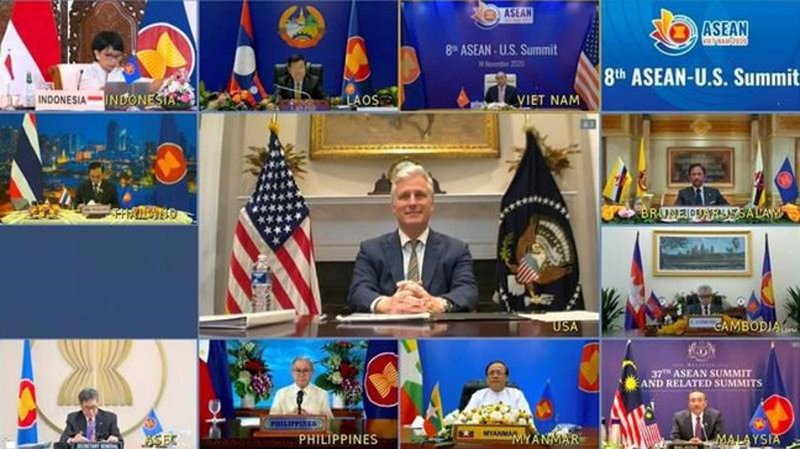
Trump skips Southeast Asia summit for third year in a row
HANOI, Vietnam — President Donald Trump skipped a summit with his Southeast Asian counterparts for the third year in a row on Saturday, with rival China set to expand its influence with a massive free trade deal in the region.
National Security Adviser Robert O’Brien said Trump regretted he was unable to attend the online summit with the 10 members of the Association of Southeast Asian Nations, but stressed the importance of ties with the region.
“At this time of global crisis, the U.S.-ASEAN strategic partnership has become even more important as we work together to combat the coronavirus,” O’Brien said in remarks at the opening ceremony, which was livestreamed to ASEAN members watching from their respective countries.
Trump attended the ASEAN summit in 2017, but sent only representatives during the last two meetings. A special summit with ASEAN that he was supposed to host in Las Vegas in March was called off due to the pandemic.
